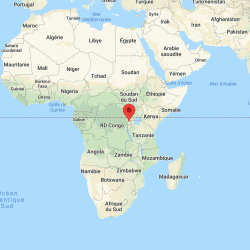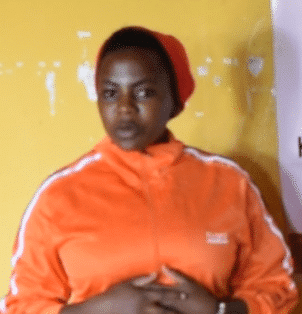Context
Rwanda is still affected by the 1994 genocide, during which nearly one million Tutsis were massacred. The democratically elected Rwandan Patriotic Front gradually restored order, security and then civil service and ensured the stability of the country.
Rwanda was one of the few countries that had been able to achieve most of the United Nations Millennium Development Goals. Substantial progress has been made in poverty reduction, education and HIV prevention.
Despite these successes, Rwanda is still a poor country, ranked 160th out of 189 by the latest UNDP Human Development Index in 2020. It faces significant development challenges. Chronic malnutrition, poor infrastructure, lack of access to electricity, early childhood development, child mortality, the quality of education and the prevention of violence against children all require sustained attention.
Our action
BREAKING THE VICIOUS CYCLE OF POVERTY
People living in extreme poverty in Rwanda face a variety of complex challenges, including malnutrition, lack of clean drinking water, limited access to education and information, disease, poor housing and environmental conditions, social discrimination and exclusion, and adverse climatic conditions.
THE STRENGTH OF OUR APPROACH: ADDRESSING THE MULTIPLE CAUSES OF EXTREME POVERTY
Addressing the issue of income is not enough! Tackling only one of poverty’s causes, through partial aid, is an insufficient solution to sustainably overcome it.
Our Economic and Community Development FXBVillage Model allows us to provide, in three years, a complete response to the fundamental causes of poverty by simultaneously acting on 5 predominant factors.
The fundamental pillar of our model is economic strengthening. Its main innovation is the donation of seed capital—in lieu of loans—thus allowing families to achieve economic autonomy. Families are also given training in business management and financial literacy, enabling them to start income-generating activities (microenterprises) and gradually earn enough money to meet their daily needs, facilitate their financial inclusion, and continue to prosper after the program ends.
Along with economic strengthening, FXB ensures that every family member has access to basic human rights through four additional pillars: food security, access to education and critical health & social information, access to adequate health services, and a healthy home & environment.
For FXB, combating poverty also means fighting against all forms of discrimination, particularly gender discrimination, in order to balance relations between men and women so that the latter, who are more exposed to poverty, can access the same economic and social opportunities.
1 – Developing the socio-economic capacities of families
- Establishment of Savings, Credit and Support Groups to provide services to beneficiary families who do not have easy access to formal financial services. The Saving, Credit and Support Groups help create social bonds, provide space to share challenges and solutions, and foster participants’ entrepreneurial spirit.
- Comprehensive training in financial management and entrepreneurship.
- Training of participants in the creation of more productive and sustainable agricultural systems, notably through the creation of Farmer Field Schools where they learn ecological practices and Adaptation to Climate Change (ACC).
- Donation of seed capital of $180 to each family in order for them to start economic activity in agriculture or another field of their choice.
- Accompaniment of families to develop, diversify and ensure the sustainability of their economic activities.
2- Ensure their food security and eradicate child malnutrition
- Emergency nutritional support is given to families during the first nine months of the program to help them regain a satisfactory state of health.
- Creation of individual vegetable gardens for the production of fruit and vegetables for the families’ own consumption.
- Care for children under 5 years of age and pregnant or nursing women suffering from malnutrition.
3- Promoting their access to health care and disease prevention
- Registration of families with a health insurance company. They are referred to a health centre in order to benefit from adequate health care.
- Training in families’ health management and diet, sexual and reproductive health, and the prevention of endemic diseases such as HIV/AIDS, malaria and tuberculosis, including facilitated screenings.
- Psychosocial support to help families deal with the consequences of poverty and the various forms of violence encountered.
4 – Improve their living conditions
- Sanitation and equipping homes with solar lighting, improved cooking stoves, latrines, showers, and hand-washing stations.
- Training in recycling and Water, Sanitation, and Hygiene (WASH).
5 – To provide schooling for children, vocational training for adolescents and young adults, and community capacity building.
- Collaboration with schools and teachers to enable school-aged children and young adults to be (re)enrolled in school.
- Vocational training for teenagers and young adults.
- Training related to early childhood development, children’s and women’s rights, gender-based violence, family planning or natural disaster preparedness to enrich skills and build resilience.
FXB provides ongoing coaching and mentoring throughout the three years of the program to ensure that participants develop the confidence and ability to take action and acquire the economic and social skills necessary to successfully move out of extreme poverty.
THE STRENGTH OF OUR ACTION : ENSURING SUSTAINABLE AUTONOMY
All dimensions of the FXBVillage model have been designed to ensure impact sustainability. FXB builds capacity, rather than creating dependency on external aid.
Through their work and commitment, participants ensure the sustainability of results on their quality of life.
At the heart of our model is the human being: we help each person express the potential that lies within. Thus, as our intervention progresses—and each participant’s ability to meet the needs of his/her family grows—FXB’s financial support gradually decreases.
Since 2015, FXB has been promoting the cultivation of biochar (organic fertilizer), which is a coal-derived from biomass, used to capture carbon, enrich the soil with nutrients and reduce water consumption. This method, brought by FXB to Rwanda, increases yields by between 4% and 189%, depending on the crops and soil quality. Evaluated by the Rwanda Standard Board (RSB), tests have shown that biochar allows a clear improvement of soils in Rwanda.

